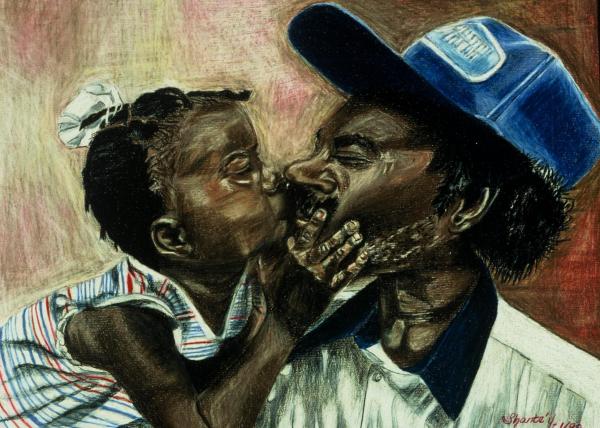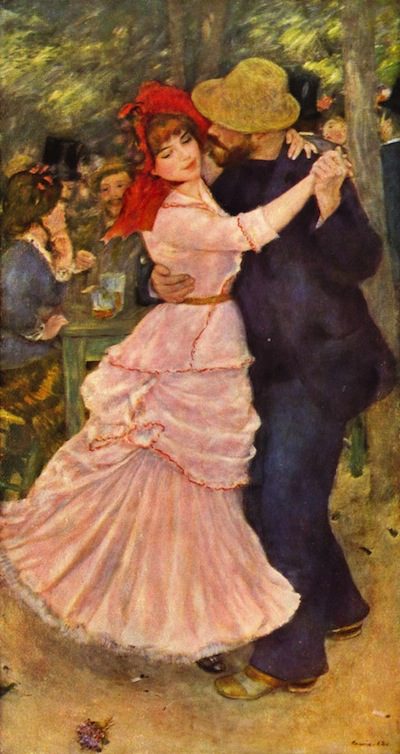Love is infinite.
By infinite I mean:
1 : extending indefinitely : endless <infinite space>
2 : immeasurably or inconceivably great or extensive: inexhaustible <infinite patience>
3 : subject to no limitation or external determination
4a: extending beyond, lying beyond, or being greater than any preassigned finite value however large <infinite number of positive numbers>
This truth sets fire. This truth, if indeed truth, can stop suicide, heal hearts, and sharpen our lives like swords — that is to say, it can give them a point, and make of them weapons against boredom and badness. We are skeptical of infinite love, not because the concept is too strange to be true, but because we experience love so innately that we have ceased to recognize it as truly strange, as the child cannot recognize the striking, unique human being that is his mother, so close is he to her heart. But if love is infinite, then we are living with an experience that transcends the finite universe, and with constant evidence of eternity. Perhaps we are too close to see it.
Allow me to muddle through an explanation:
All finite desires are fulfilled by finitudes. My desire for water is fulfilled by so much water. My desire for companionship is fulfilled by so much companionship. My desire for physical touch is fulfilled by so much touch.
It seems self-evident that, given too much of any finitude, we will no longer want it. Too much water and I’ll die. Too much companionship and I’ll go insane. Too much touch and I’ll start to feel awkward.
Now, few people will contest the claim that we have a desire to be loved. If this love we desire is not infinite, it must be finite, for there is no middle ground between the ending and the endless. If we have a finite desire for a finite love, it follows that same conditions that apply to water, companionship, and all other finitudes will apply to love.
But the opposite is true. Our desire to love and to be loved is not fulfilled by finitude. If I claim to love my daughter, and set a limit to my love, I do not love at all. If my love for a friend is dependent on my continually being pleased by him, that is, if my love for him is finite, then it is not love. If I love a woman with a strict end-point in mind, if I say “I love her, but I certainly won’t suffer for her,” then my love is no love, and would be universally recognized as such. In fact, any expression of love as dependent, finite, conditioned, or ending negates itself, and the following statements are absurd for that very reason: “I’ll love you for 30 years”, “I’ll love you if you sleep with me” or “I love when you are happy”.
my love, I do not love at all. If my love for a friend is dependent on my continually being pleased by him, that is, if my love for him is finite, then it is not love. If I love a woman with a strict end-point in mind, if I say “I love her, but I certainly won’t suffer for her,” then my love is no love, and would be universally recognized as such. In fact, any expression of love as dependent, finite, conditioned, or ending negates itself, and the following statements are absurd for that very reason: “I’ll love you for 30 years”, “I’ll love you if you sleep with me” or “I love when you are happy”.
Any experience of love as finite would be disappointment. We clench our teeth when told “I’ll love who you become”, “I can’t love you after that“, because we experience a lack of love. The language of love is not the language of finitude.
And, somewhat fascinatingly, that idea that “given too much of any finitude, we will no longer want it” is rendered ridiculous by the fact of love.
As a basic rule, we desire the amount owed to us, or the amount appropriate to us. We desire as much respect as we deserve. We desire as much wealth as we believe we deserve. We desire the amount of food and water appropriate to us as human beings.
But we can only experience love as more than we deserve. To think of it otherwise is offensive: No husband lays down next to his wife and thinks, “I deserve her”. No wife looks to her husband with the thought, “Here is a man I am owed”. What friends could stay friends if one told the other, “do not be too much of a friend to me, or else I will no longer want you”, and other replied, “be my friend, for your friendship is precisely the amount of friendship I deserve”?
No, it as Jean Luc Marion says: Barring its excess, love is not. Every experience of love is an experience of gift. There is no such thing as a deserved gift, a just gift, or even an appropriate gift. Gifts are just that — given. Any gift that is dependent on something else — I’ll give you this if you give me that, I’ll make you this gift if it influences you to do that — is no gift. Again, love cuts out the tongue of finitude: We do not grow sick of too much love, we happily experience love as too much.
(OBJECTION: Now it could be argued that we can grow sick of too much love, as when a mother smothers her child, or when a man is obsessive over a woman. I would argue that such incidences are not examples of too much love, but of love’s lack. For love is desiring the good of the other, and the good of the child is not to be smothered, nor is the good of any woman to be “held back” by the constant, doting obsession of a man.)
If love is infinite, this all makes sense. All a finite world could say of the infinite is that it is “too much”. We want love, and we want  it as love, and thus we want too much love, for love is infinite, and thus always and ever too much for the finite. Thus lovers express — rightly or wrongly — two major things: Eternity and unworthiness. Love as infinite and love as too much:
it as love, and thus we want too much love, for love is infinite, and thus always and ever too much for the finite. Thus lovers express — rightly or wrongly — two major things: Eternity and unworthiness. Love as infinite and love as too much:
“I’ll love you forever.”
“My love knows no bounds.”
“I don’t deserve you.”
“I’m not worthy to kiss your feet.
“You are a gift, an angel dropped from heaven, etc., etc.”
Every finite human exchange is a transaction and a function of economy. I’ll respect you if you respect me, I’ll communicate to you if you communicate back, I’ll pay you if you do me this service, I’ll open my heart to you if you’ll help me, I’ll tell you a secret if you promise not to tell, etc. In any of these situations, were one human to cease fulfilling his finite obligation, the other would cease to fulfill his. If I ceased respecting others, others would cease to respect me. If a man shared my secrets, I would cease to give them to him.
But love, certainly a human exchange, by its nature transcends exchange, transaction and economy. We suffer this reality. Love — though it often receives love in return — does not require love in return in order to exist. I can love the girl who scorns me and gives her love to that lacrosse player with the hair and the car. A mother can love her newborn even if the newborn “loves” her only insofar as she is warm and has breasts. The father can love the son who hates him. Indeed it is possible — improbable perhaps, and immensely difficult — to love your enemies.
(OBJECTION: One might argue that finitudes can transcend human exchange. But I would argue that this is only possible insofar as our finite acts become acts of love. Take paying a man for a service. I may rip this exchange from the world of transaction and simply pay a man in order that he might have pay. But what is this? Charity. And what is the definition of charity? Love. I may respect a man despite his total lack of respect for me, but I can only do this in so far as I recognize that that he is worthy of respect regardless of his actions, itself an act of love.)
Love cannot be described as a finitude with contradicting human experience. And love’s infinite nature cannot be brushed aside by the claim that we merely experience love as infinite, but in reality, it isn’t, for a) this is a faith-based statement and b) what do we know outside of experience? If our experience of reality does not coincide with what reality actually is, how can we we experience the statement “Love is finite” as being true, and have it mean anything? It’s a hop and a skip into absurdism. We must, in order to reason at all, believe in our experience of reality, and our experience of reality tells us that love is infinite.
This means that humans have available to them something which transcends the material (which, according to the law of entropy, is finite), something which can rightly be described as spiritual (which is only to say “not material”), and something which fulfills our deepest desire, (evidenced by the fact that we will die for love). It does not seem, at the final count, that we are merely material beings. We traffic in the divine.












